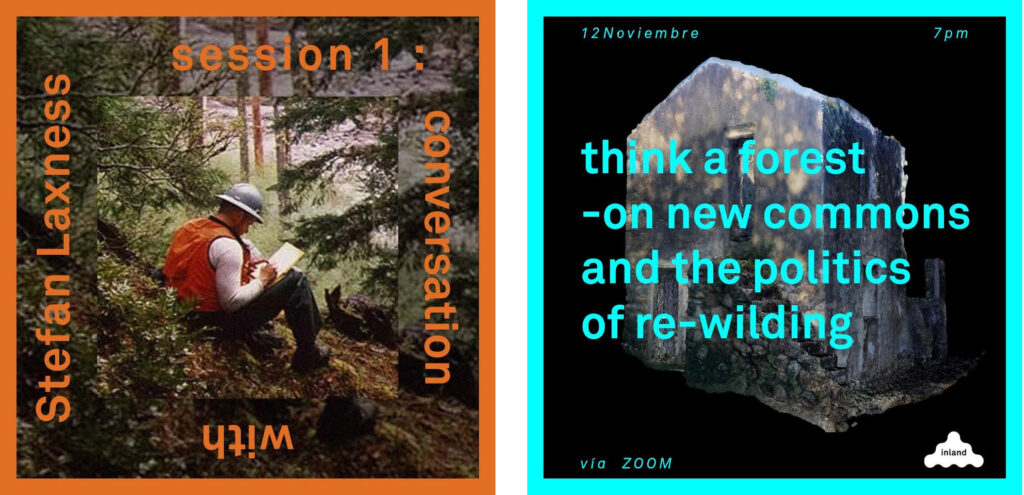
Laxness started this Summer – Fall to undertake a research work into communal forests in the north of Spain, when he also visited and presented at Inland, and the possibilities of these territories to minimize or even reverse the damage inflicted on the natural environment. After observing the lack of a participative spatial project in the field of environmental restoration, Laxness focused his attention on Galicia’s montes vecinales en mano común or «communal forest». The montes vecinales are small, traditionally autonomous, parish lands which in recent years have used collective decision-making to restore the diversity of their forest.The project, defined hand to hand with the neighbours of Froxan ongoing actions, proposes turning a network of territorial common holdings into a critical framework for re-inhabiting our rural territories and generating participative projects for environmental restoration, including a Dis-eucaliptation Brigade.
The research process echoes the transformation of Eucaliptus forest at the Inland Village into an edible forest, and in an installation as display as archival material at our Madrid headquarters, followed by a conversation online, the 12th of November at 19 h, about his engagement with the village. Titled «1 sq. km of Resistance through Process'», it draws on the potential for large-scale environmental restoration and the consequences it could have on the way in which we inhabit and occupy our territory.

Laxness approach involves the development of open-code technologies for environmental detection, for which he has created his own cameras to record the rate of photosynthesis in plants. Attaching the cameras to a simple helium balloon, he undertakes a series of individual and collective «sensorial strolls» through rural Spain in order to discover and record the processes of deterioration of the land and rural depopulation. The very instability of the balloon, subject to changes in the environment, make it a mediator or a device between Laxness and the land. Moving slowly through the undergrowth, carefully negotiating the spatial threshold of communal land, private property and abandoned fields, these “strolls” afford a vision close to the land.
This programme is presented in collaboration with Serpentine Galleries’ General Ecology project, Table and Territory and Confederacy of Villages networks. The work also had the support of Laboral Centro de Arte, Fundacion RIA and Laboratorio Ecosocial de Barbanza.


